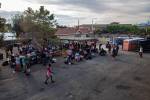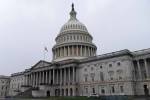EDITORIAL: Who leaked details in the HOA probe?
The final mystery ensconced within the federal investigation into homeowners association fraud in the valley has remained tantalizingly unsolved, thanks mostly to Justice Department prosecutors who insist on keeping it under wraps.
But the question of who allegedly leaked details of the probe to at least one of its main conspirators — leaks that caused the Justice Department in Washington, D.C., to take the case away from the Nevada U.S. attorney’s office — persists. And another clue has surfaced that screams out for an answer.
Lisa Kim, who ran a homeowners association management company linked to the massive HOA fraud probe, gave a civil deposition in which she’s alleged that Nevada Supreme Court Justice Nancy Saitta tipped off conspirators about FBI raids intended to gather critical evidence in the case. It’s a charge that Justice Saitta has consistently denied.
But, according to a report this week by the Review-Journal’s Jeff German, Kim also alleged in her 101-page deposition that attorney Nancy Quon — one of the masterminds of the fraud scheme — said a member of the Nevada U.S. attorney’s office had tipped Quon to the investigation months before the raids took place in September 2008. Based on that tip, Quon allegedly shredded “tons of documents” at her law office two weeks before the FBI raids, Kim says she was told by another defendant. In fact, the shredded documents were removed from the office in “wheelbarrows,” Kim says she was told.
Quon committed suicide in March 2012, without ever revealing the name of her alleged tipster in the U.S. attorney’s office. And Quon’s former attorney, Tom Pitaro, discounted Kim’s allegations.
The contents of this deposition weren’t available in December, when U.S. Magistrate Judge George Foley Jr. denied a request from the Review-Journal to unseal millions of pages of documents in the now-closed HOA fraud case, including documents related to a Justice Department investigation into the leaks in Nevada’s U.S. attorney’s office. The deposition provides a powerful argument in favor of releasing those documents.
If a federal official tipped off an alleged conspirator to the existence of a federal probe, and if based upon that tip, valuable evidence was destroyed, then at the very least obstruction of justice may have occurred. And while federal prosecutors got guilty pleas or convictions from 43 defendants in the case, what evidence could they have missed? What might they have learned from the wheelbarrows full of shredded documents allegedly taken from Quon’s law office?
We may never know.
Judge Foley based his order in part on arguments from the government that the leak investigation delved into personal and romantic relationships of public officials who were not charged with wrongdoing. “The government has made a sufficient showing that disclosure of these documents would potentially cause unfair prejudice to the individuals who were the subjects of the investigation, but to whom no charges, criminal or administrative, were ever brought,” the judge’s order reads.
But that reasoning is hard to fathom, given the circumstances — protecting public officials from embarrassment cannot possibly outweigh the integrity of the justice system and the public’s confidence therein. The public obviously has a greater interest in learning whether the employees of their federal justice department engaged in misconduct that could have affected a massive public corruption case than those same employees have in keeping their personal indiscretions secret. The public has a right to know if a thorough and competent investigation of alleged wrongdoing was conducted, and why no one was ever held accountable for the alleged leaks. The allegations in Kim’s deposition, and the secretive way the Justice Department has moved to keep the case outside the public view, have serious implications for the perception of the integrity, fairness and professionalism of the justice system.
We said in December that Judge Foley’s ruling was wrong, and now there is even more reason to think so, and to continue to demand that the government tell us what it knows about the final mystery surrounding Nevada’s largest public corruption case ever.























